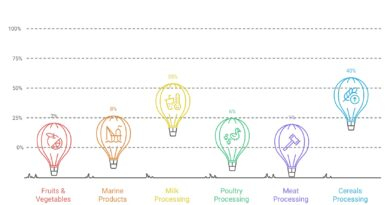Razzaza Lake
Context:
Iraq’s Razzaza Lake was once a tourist attraction known for its beautiful scenery and an abundance of fish that locals depended on. Now, dead fish litter its shores and the once-fertile lands around it have turned into a barren desert.
Contents
Razzaza Lake:
- Razzaza Lake, also known as Lake Milh, Arabic for Salt Lake, is located between Iraq’s governorates of Anbar and Karbala.
- It’s the second largest lake in Iraq and is part of a wide valley that includes the lakes of Habbaniyah, Tharthar and Bahr al-Najaf.
- Lake Tharthar is the largest.
- The lake was constructed as a measure to control floods in the Euphrates and to be used as a huge reservoir for irrigation purposes.
- Iraqis and tourists frequented the lake as a recreational spot to cool down during Iraq’s hot summers.
- In recent years, it has been affected not only by the water shortage but by drought, neglect and increased evaporation during Iraq’s hot summers. It has also been hit by pollution due to the diversion of sewage water into the lake and the theft of water quotas allocated to it.
India-Iraq Bilateral Brief
- India and Iraq have historical and civilizational ties. Iraqi port of Basra was not only the market par excellence of the Indian merchandise including textiles, spices, food-grains and other commodities for the Arab world but also of the famous pearl trade that flourished mainly through the Indian traders and jewellers.
- Indian soldiers and railway workers from British India had played major role in ensuring the security in this region during the colonial era and have left an imprint in the region.
- The breed of the southern Iraqi Jamus or the water buffalo had been brought by Harun Al Rashid from India.
- The Iraqi Philosophers and Sufi saints like Khwaja Hasan al Basri, Junaid Al Baghdadi and Sheikh Behlul had such an impact on the spiritual movements in India that Guru Dev Nanak Saheb came personally to Baghdad to deliberate on the ontological and the epistemological questions with Sheikh Behlul who hosted him for nearly three months.
- Iraqi spiritual leader Sheikh Syed Abdul Qadir Jeelani has enormous following in India where he is referred to either as Dastagir Saheb or Ghous-al-Azam.
- On the other hand, Indians were among the foremost to patronize the Shrines and Sarai Khanas of the heritage of Islam’s primeval martyrdom at Karbala.
- Thousands of Indians visit the shrines of Imam Hussein and Imam Abbas in Karbala every year and also the shrine of Sheikh Abdul Qadir Jeelani in Baghdad.
- Since the outbreak of war in Iraq, India has been supporting a free, democratic, pluralistic, federal and unified Iraq.
- India responded to the urgent needs of Iraq for relief and economic reconstruction directly and as part of international efforts under the UN auspices. In response to UN Secretary General’s urgent appeal, India committed US$ 20 million for assistance to the Iraqi people in 2003.
- Activities under this pledge included supply of milk powder through World Food Programme, training of Iraqi Foreign Service officers in diplomacy, and other Iraqi officials in Information Technology.
- In cooperation with World Food Programme (WFP), India provided fortified biscuits to Iraqi school children and Iraqi refugees in Syria.
- In addition, India contributed US$ 10 million in 2004 towards the International Reconstruction Fund Facility for Iraq (IRFFI) for investments, reconstruction and development in Iraq. Shri M. J. Akbar Minister of State for External Affairs represented India at the Kuwait International Conference for Reconstruction of Iraq in Kuwait in February 2018 and pronounced interests of India to the reconstruction of Iraq.
Economic and Commercial relations
- The economic and trade relations between India and Iraq slowed down after the invasion of Iraq in 2003.
- However, the total bilateral trade has grown steadily since 2010, mainly due to increasing crude oil imports.
- The value of total trade increased from US$ 5.7 billion in 2006-07 to US $ 20.52 billion in 2012-2013.
- Trade in the subsequent years declined largely due to fall in the global oil prices, however bilateral trade has actually increased in quantity, both in exports and imports.
- In FY 2019-20, Bilateral Trade with Iraq was valued at US$ 25.61 billion.
- Bilateral trade in FY 2020-21 amounted to US$ 15.78 billion, accounting for about 2.31% of our total foreign trade.
- The bilateral trade amounted to US$ 19.84 billion during the period of April-November 2021, witnessing an increase due to enhanced economic activities. Iraq has now become the 5th largest trade partner of India.
- India opened its Consulate in Erbil, the Capital of Kurdistan region, in August 2016 to further strengthen economic and commercial relations with Iraq.
Source: Indian Express
You can find many articles on ENVIRONMENT (part of GS III) in our website. Go through these articles share with your friends and post your views in comment section.
Discover more from Simplified UPSC
Subscribe to get the latest posts sent to your email.



